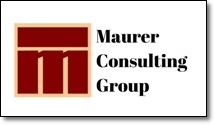
Focus on Increasing the Value of Your Small Business
Every entrepreneur would love to boost the value of his or her small business. Opinions differ as to which strategies are best to add meaningful value in weeks or months as opposed to years or decades. Fret not, you can significantly increase the value of your small business in a short period of time if you implement proper strategies. Even if you do not end up with an offer that knocks your socks off, increasing the value of your small business just might inspire a lofty bid at some point down the line. Let’s take a quick look at some of the best strategies to increase your company’s value.
1. Assemble an Elite Management Team
Your company’s leaders are its most important employees. If your managers are lazy, overly-critical of those beneath them or constantly on the prowl for new opportunities outside of your organization, your company’s value will take a significant hit. Alternatively, if your management team is focused, hardworking and loyal to the organization, your company’s value will be significantly higher.
Take some time to assess each manager’s performance and motivation. Weed out the lazy and/or incompetent managers who do not earn their keep. Keep the true leaders and you will be able to highlight their skills, drive and devotion when the time comes to put the business up for sale or entertain takeover offers. Even if you do not receive the bid you have in mind, your all-star management team will take your company to new heights in due time. Be patient and you will enjoy the results in the form of increased revenue and profitability.
It will also help to prepare the appropriate employment agreements and incentives to help retain your best managers in the event you accept an offer to sell the business. Present these employment agreements to interested buyers and they will bid in full confidence knowing essential team members are committed to the organization for the long haul. Otherwise, bidders run the risk of valuable employees jumping ship immediately after the company’s ownership changes hands. Savvy business professionals will not even consider bidding on a company with top managers in limbo. Provide interested parties with assurance your top talent will remain in place well after the ownership transition and you will maximize the company’s value as well as its selling price.
2. Diversify Your Customer Base
Diversification is just as important for your personal investment portfolio as it is for the future of your small business. The difference is businesses need a diverse customer base while portfolios require diverse holdings. Use your mind’s eye to envision what would happen to your business if your largest customer cut ties and fled to the competition. Would your business remain afloat or would it sink? The loss of your primary customer can have a significant impact on your business. Prospective bidders will consider it a high-risk investment. Put forth the effort necessary to expand your customer base today and it will be that much easier to sell your business in the future.
Consider expanding your services and/or products as well as your marketing efforts to connect with that many more clients of varying backgrounds and interests. Amass a diverse array of customers and the loss of your primary customer will not sting nearly as badly. In general, no client should account for more than 10 to 15 percent of your business.
3. Develop a Legitimate and Realistic Growth Plan
Business bidders have an eye on the present as well as the future. If you cannot communicate to prospective bidders how your business will reach the next level, there will be minimal or no interest in your business. Focus on improving your company’s scalability so it can grow as quickly as possible without major snags. Craft a growth plan that demonstrates how your business will continue to expand, reach new customers and ultimately make more money in the short-term as well as long-term.
Present this plan to prospective bidders and they will bid on your business in full confidence knowing the groundwork has been laid for a successful future. The only caveat is to make sure the plan for growth is realistic. Interested parties may question whether your anticipated rate of growth or growth strategies are unrealistic. They will also question the value of your small business as well as your foresight as a business professional.
4. Review Your Company’s Financial Information Regularly
The quality of your company’s financial information is of the utmost importance. Be proactive by hiring an objective outside party to perform an audit of your business’s accounting and financial statements. If your company’s records and books are not detailed and accurate, it will be difficult to find any interested bidders. Above all, your company should have reliable financial controls and systems in place to safeguard assets. The bottom line is: you have to prove your financial claims are 100 percent accurate. Without this authentication, there will be no way to gauge the true value of your business.
5. Establish Metrics to Measure Employee Performance
Give your employees something to strive toward and they will be motivated to give their all. Employee compensation should be tied to individual performance as well as revenue generation. Otherwise, your employees will lack the motivation necessary to be as productive as possible in the workplace. Implement metrics that gauge performance and your business will operate with improved efficiency. Your workers will be more engaged with their work once they know positive reinforcement awaits for jobs well-done. This heightened employee engagement really does increase the value of your small business. At the same time, it makes it more attractive to prospective hires as well as investors.
The Moral of the Story: Minimize Risk and Maximize Return
Prospective bidders are looking for a business with legitimate value and minimal risk. Zero in on the value drivers that will hike your company’s worth while simultaneously decreasing risk. You will likely find plenty of interest in your business. You may need to make a short-term investment in your business to spike its value. Even so, that investment will likely more than pay for itself in the form of attractive bids.
Marla DiCarlo is an accomplished business consultant with more than 28 years of professional accounting experience. As co-owner and CEO of Raincatcher, she helps business owners learn how to sell a business so they can get paid the maximum value for their company.






